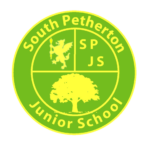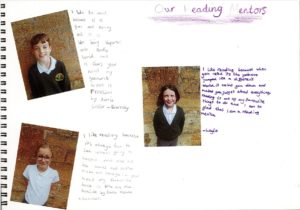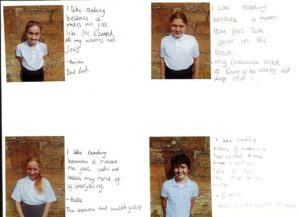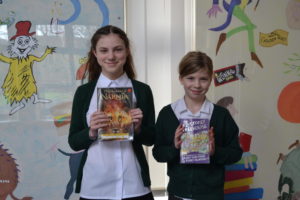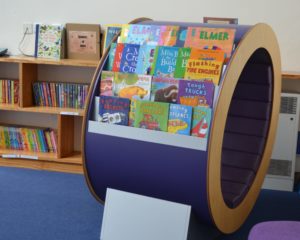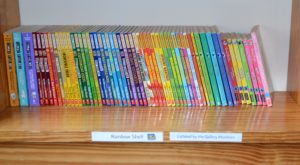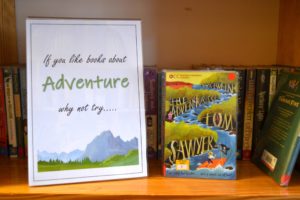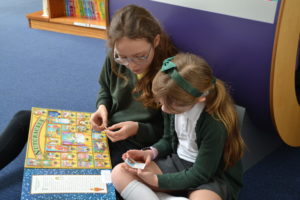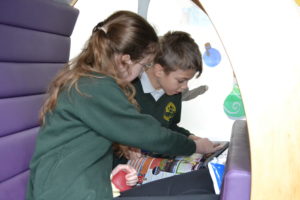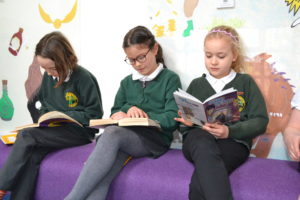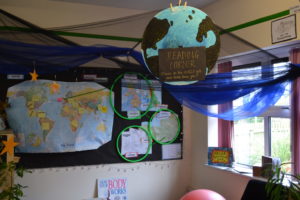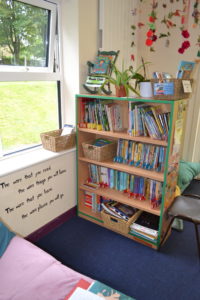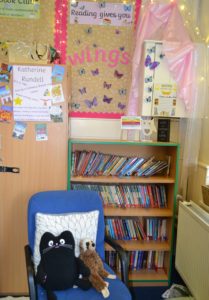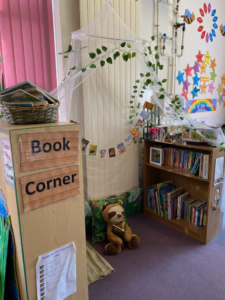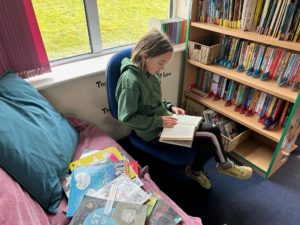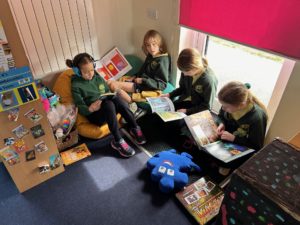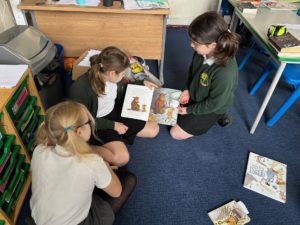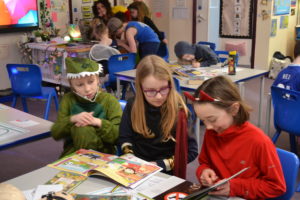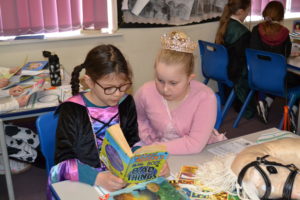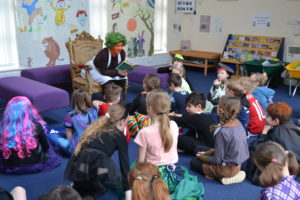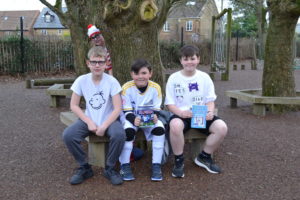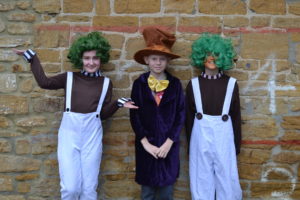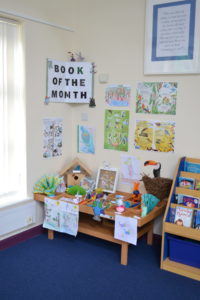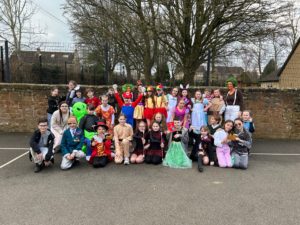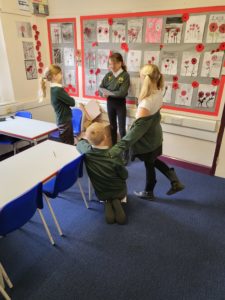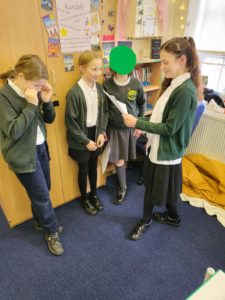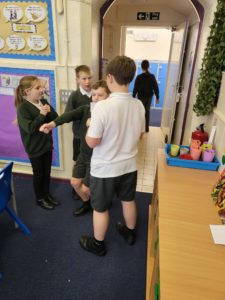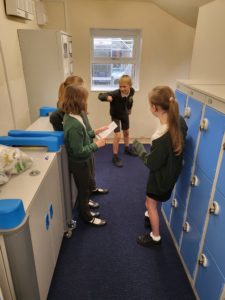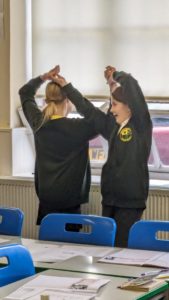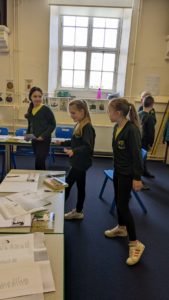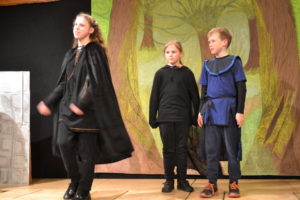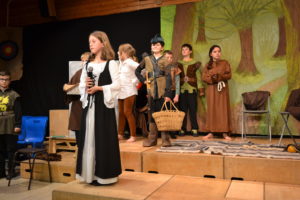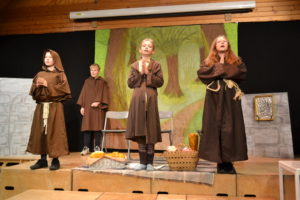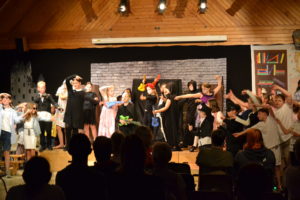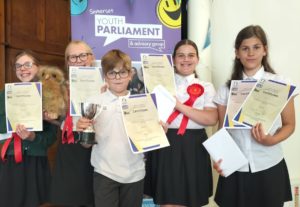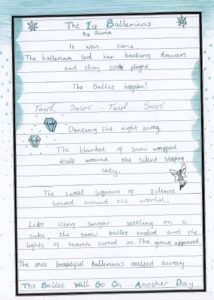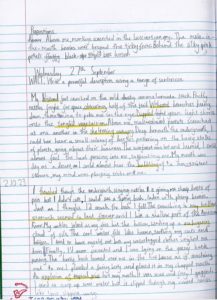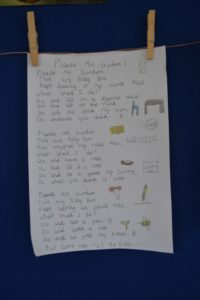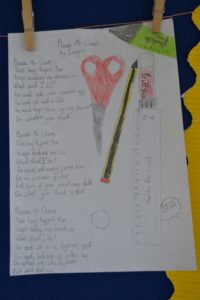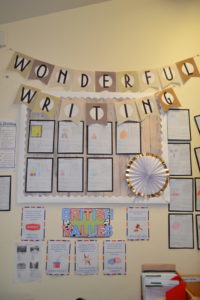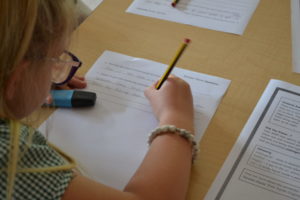Our School Offer for Reading
Within the Purpose of Study for English (National Curriculum 2014), we know that ‘through reading in particular, pupils have a chance to develop culturally, emotionally, intellectually, socially and spiritually…Reading also enables pupils to acquire knowledge and to build on what they already know’.
What do we mean by Reading?
In Key Stage 2, we focus on the two dimensions of word reading and comprehension (both listening and reading).
Word reading:
When children start at the Junior school, they should be able to read books written at an age-appropriate interest level. They should be able to decode (work out the pronunciation of unfamiliar printed words) most new words. We build on structured phonics teaching from Key Stage 1 (‘Read Write Inc’ if children come from SPIS).
Comprehension
Good comprehension draws from knowledge of vocabulary and grammar and from knowledge of the world. We believe that comprehension skills develop through high-quality discussion with an adult, as well as from reading and discussing a range of stories, poems and non-fiction. The more children read, the more they encounter words they would rarely hear or use in everyday speech.
How do we teach Reading?
- Each child participates within weekly whole-class comprehension lessons, using a range of commercially published texts.
- We teach higher-order reading skills which children need to better understand and discuss texts; each class uses the same approach of ‘VIPERS’ (Vocabulary, Inference, Prediction, Explanation, Retrieval and Summarising)
- During comprehension sessions, children are listened to reading aloud and are encouraged to highlight new or interesting vocabulary in the texts. This allows whole class discussion of vocabulary and extends the children’s understanding of words.
- Each child reads daily with books matched to their reading ability; the school uses Accelerated Reader to identify this though a STAR Reading test which gives a Zone of Proximal Development (ZPD). Each child knows the range of books that they can choose from.
- After reading their individual Accelerated Reader book, each child will take a short online quiz to check understanding and vocabulary.
How do we inspire a love of Reading?
We believe that reading feeds the imagination and opens up a treasure-house of wonder and joy. We believe that we must excite children with a range of high-quality books that can be found within the Classroom and Gallery.
Each classroom has an identified reading area to both share a range of appropriate banded books and to motivate children to read. Each class is named after an author and is distinctive through door display and quotes. Class teachers read books by their author within the year and plan units of work around these. Year 3 and 6 Buddies meet to share books; this promotes immeasurable joy and pleasure.
Our Gallery promotes motivation with two exciting reading chairs, book quotes and listening centres. All classes have the opportunity to read within this area.
We celebrate National events such as ‘World Book Day’ and ‘National Story Telling Week’. Through these we try to engage children with oral story-telling, book discussions and quizzes. We also aim to further enrich our curriculum with visiting theatre group performances of well-known tales or visits to theatres.
How do we address gaps in pupil’s knowledge and skills in reading?
If children struggle to decode, they need to be taught this urgently through a rigorous and systematic phonic programme. Children may receive further phonic support using specific phonic interventions, Individual Literacy sessions and other evidence-based interventions. We also use reading scheme books to ensure progress and children will be identified for 1:1 additional daily/regular reading with an adult.
Regular testing helps us track progress; we use formal tests such as the Single Word Reading Test (SWRT) and the STAR Reading test (Accelerated Reader) which give us a raw score that can be converted to a standardised score. These can then be compared against national averages. All interventions are monitored in conjunction with the class teacher and school SENDCO for impact.
How do we assess Reading?
We continually assess reading skills; this may be through 1:1 reading or through comprehension activities. Each child will also complete a short-written comprehension test twice within the year. In Year 6, each child will take the Key Stage 2 Reading SAT (1 x Reading paper with three comprehension texts).
How can Parents/Carers help?
We know that most children love reading at home; many Parents/Carers create a love of books through daily reading before bedtime, listening to audio books and visiting Libraries and bookstores. We thank everyone for this.
The school will ensure that all parents/carers have clear understanding of their child’s reading level; Parents/carers will also be told if their child is receiving group or 1:1 intervention for reading.
The school will send a Reading Log home to aid Home/School communication; a clear prompt for use will be attached to the front of the book.


